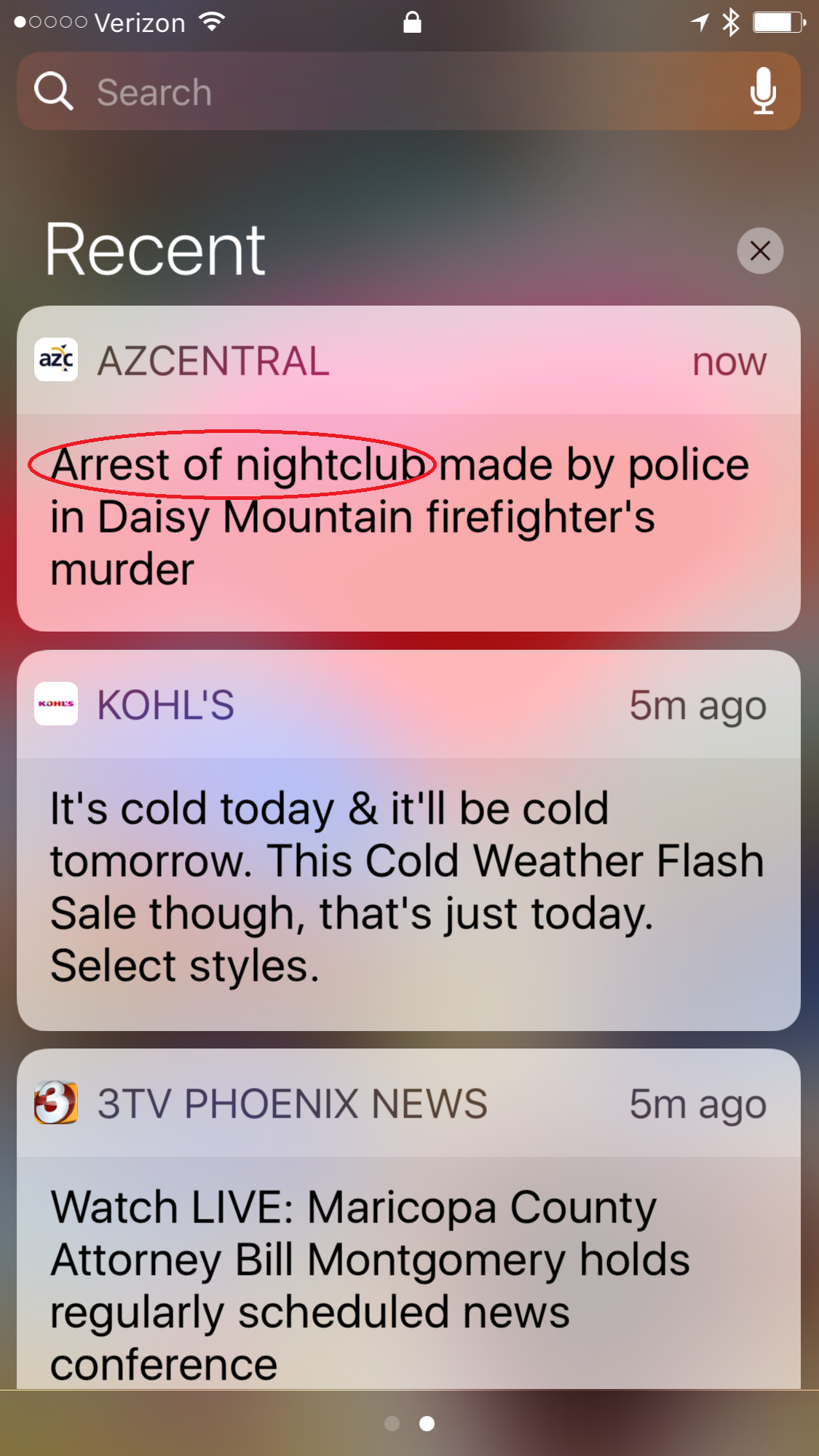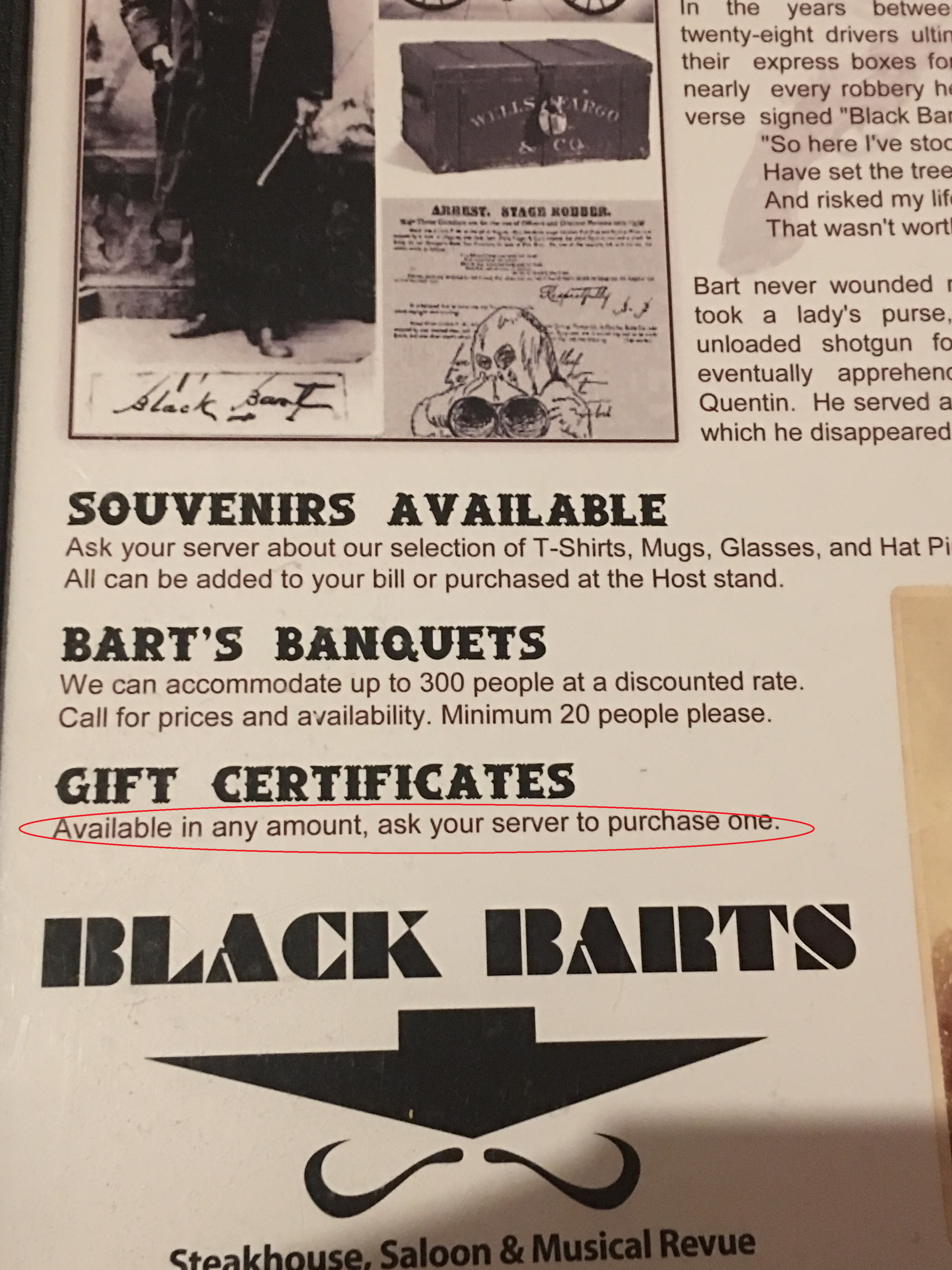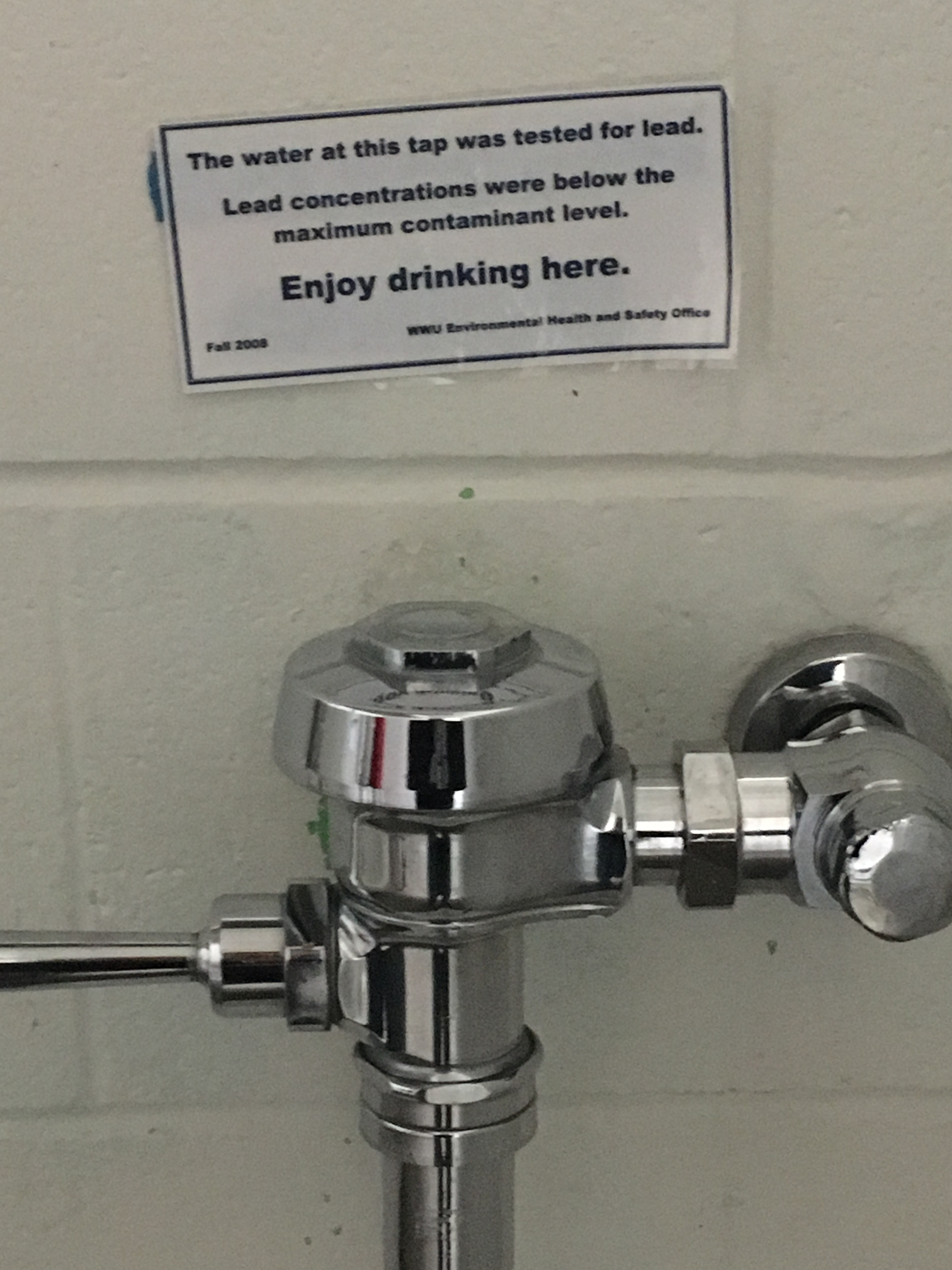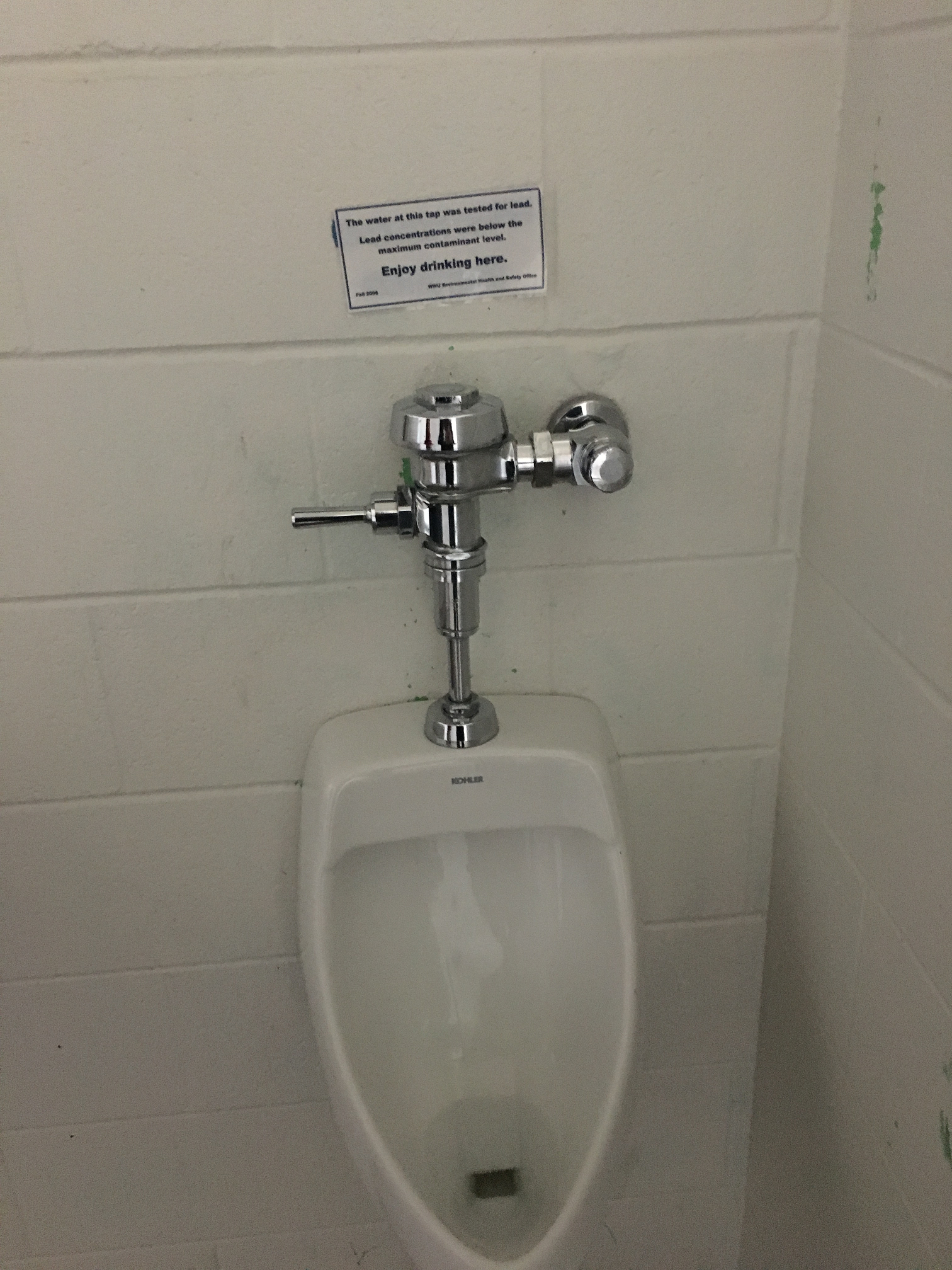Once again in an effort to be the first to report, a local news station left out some words in this headline that are pretty important.

Once again in an effort to be the first to report, a local news station left out some words in this headline that are pretty important.

I caught this on a recent dinner out during a weekend with friends. I think the comma is unnecessary–it should be a period–and the wording at the end is confusing. Taken literally, I am encouraged to ask my server to purchase a gift certificate. So I would say “Dear Server, please purchase me a gift certificate” and the server would purchase a gift certificate and give it to me for future use. Perhaps it should say “Ask your server about purchasing one.”

My brother-in-law sent me this picture from a University restroom:

And just in case you don’t believe the sign is placed where you think it is, here is a wider shot:

I’m hoping this is his last name and not the grammar disaster it appears to be.


Check out the updated article at ENCORE – The State of Capitalizing State
I need to clarify something in a blog post published in 2014 on Capitalization in Legal Documents. The capitalization of the word “state” is obviously very confusing depending on your preferred resource.
According to the Gregg Reference Manual, “state” should be capitalized:
Most other sources I’ve found disagree with Gregg’s first example and say that “state” should not be capitalized when used as a proper noun but is capitalized when used in place of a particular state or referring to a specific governmental body:
According to another favorite resource of attorneys, the Chicago Manual of Style, “where the government rather than the place is meant, the words state, city, and the like are usually capitalized.”
Another resource simplifies it as when you are using “state” as a common noun, you would not capitalize it:
But do capitalize “state” if it is part of a proper name
All resources agree that “state” should be capitalized when it is a party to litigation.
The only comfort in all this confusion is that obviously everyone is confused. In fact, in many recent U.S. Supreme Court cases, “state” is capitalized in different instances, which may be a holdover from style from the 18th Century when many common nouns are capitalized.